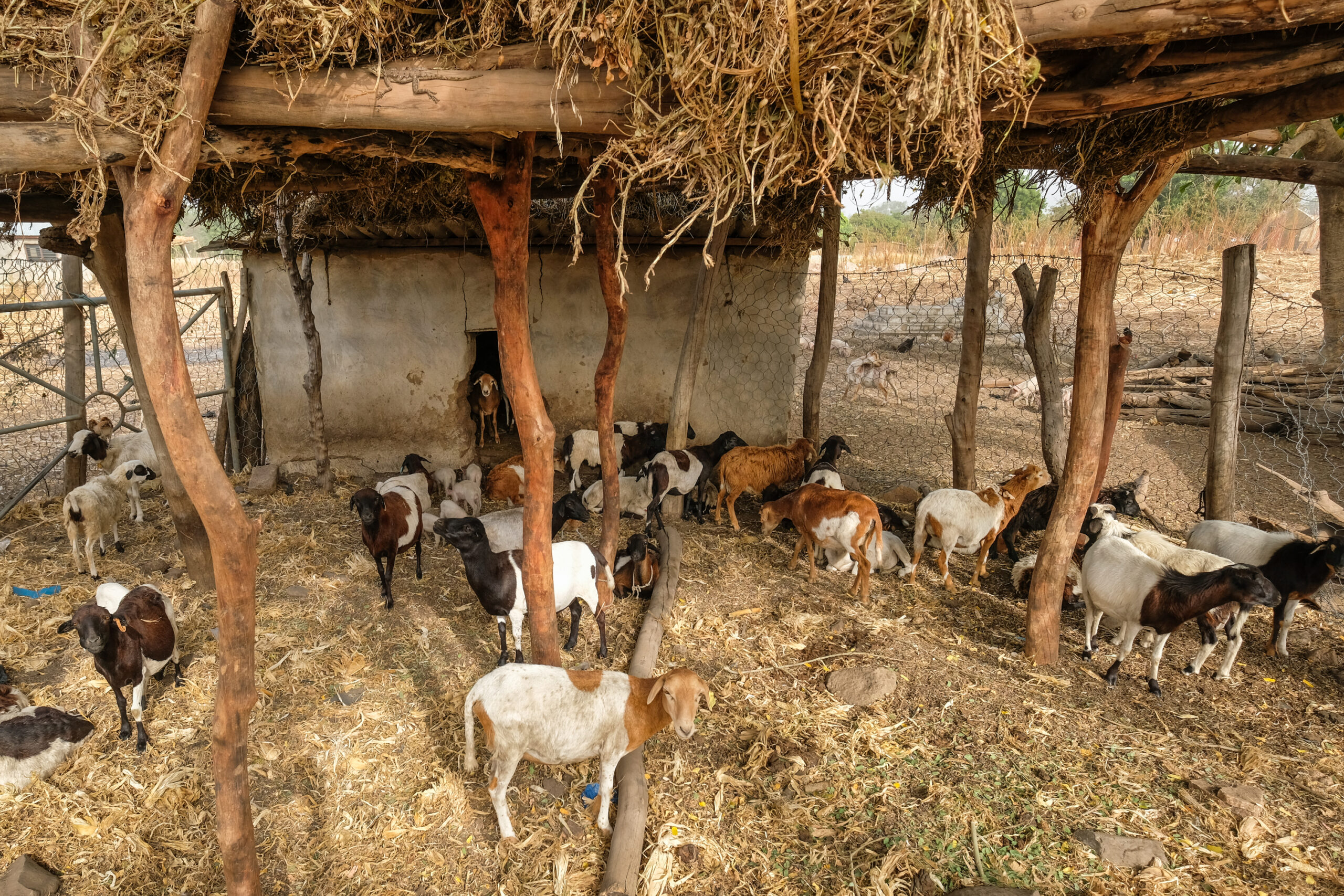Overview
Researchers
Abdul-Basit Tampuli Abukari
Lecturer, University for Development Studies
Mohammed Tanko
Lecturer, University for Development Studies
- Country
- Ghana
- Timeline
- 07/01/2023 - 03/01/2024
- Constraints
- Information
- Technology Category
- Drones

Goats in Chiana, Kassena Nankana District - Ghana. Photo by Axel Fassio/CIFOR
Lack of access to veterinary information, livestock vaccines, and medication can lead to poor animal welfare outcomes like high mortality and result in low-quality animal products such as meat. These negative effects on livestock translate to lower farmers’ welfare. In Northern Ghana, there is a high rate of livestock mortality from the anthrax bacterium and other diseases, while there is simultaneously a lack of access to veterinary information and vaccines to counter these diseases. Cowtribe is a startup organization with a mobile application that links over 5,000 smallholder livestock farmers to a network of over 200 partner certified agriculture and veterinary (agrovet) sales agents to address barriers to information, vaccines, and medication access. As part of their services, Cowtribe is piloting a drone delivery service to reach farmers in inaccessible locations, especially during emergency situations and the raining season when land travel is disrupted due to flooding.
Researchers are conducting a pilot to assess the feasibility and efficiency of the Cowtribe mobile application. Researchers will collect data on the quantity of livestock in tropical livestock units (TLU), uptake of the Cowtribe mobile application, and will interview beneficiary farmers, agrovets, and Cowtribe staff. The pilot’s learning objectives include understanding (1) what factors beyond cost determine the use of digital tools in veterinary access, (2) drones’ reliability in delivering drugs and vaccines to farmers in need, (3) the challenges farmers face in accessing the Cowtribe platform, and (4) any effects on farmers’ incomes or improved nutritional security among households.
To achieve these objectives data would be collected from a sample of 600 livestock farmers; 300 each from the treatment and the control groups. These data will be collected using survey questionnaires and focus group discussions. The study intends conducting 2 focus group discussions with the farmers and one with relevant staff of Cowtribe.
This pilot is ongoing; results are forthcoming.